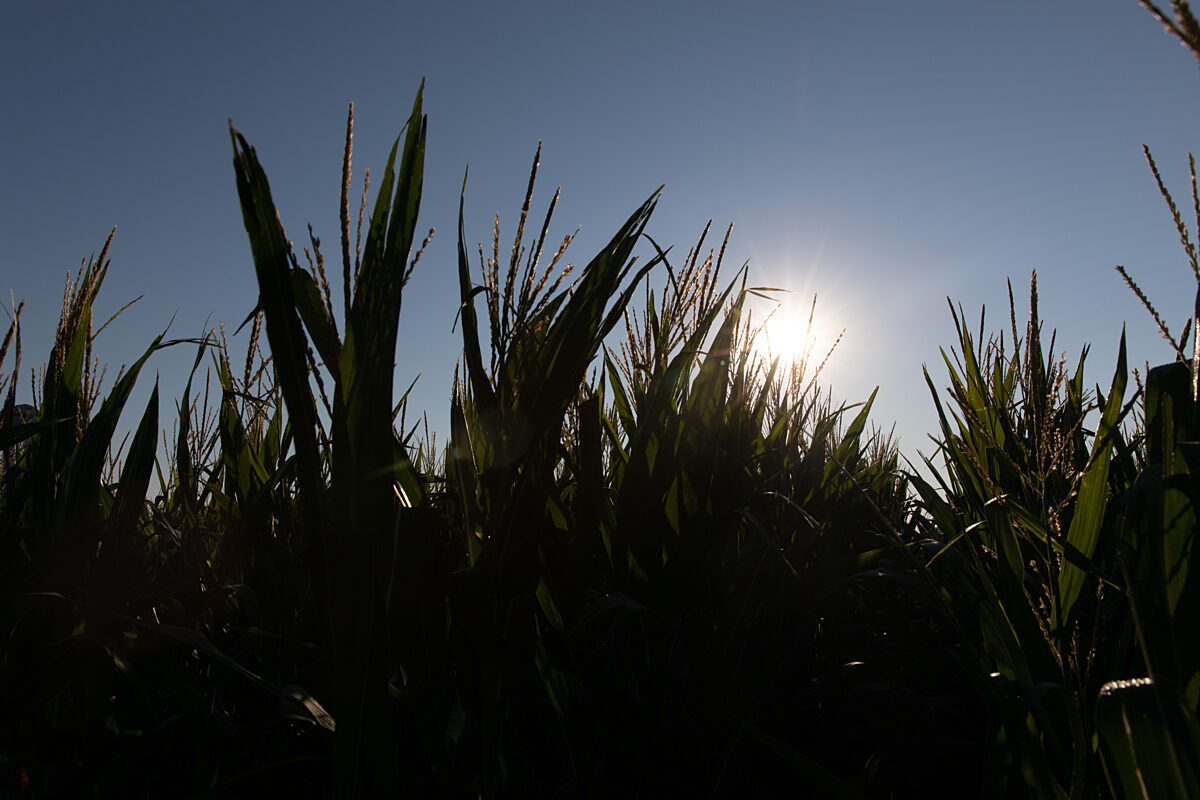The Future of Agriculture at Home and Abroad
Zippy Duvall
President

photo credit: AFBF Photo, Philip Gerlach
Zippy Duvall
President
Farming is remarkable work. We begin with the dirt, a seed or a sapling, a calf or baby chick. We nurture from well before sunup till after sundown. We face unpredictable challenges, and we keep looking for ways to do better. Few businesses begin every season back at square one, but that’s the cycle of agriculture. Few businesses have the well-being of so many riding on their success either. But farmers and ranchers rise to this challenge because we love what we do, and we want to ensure that our nation and our world continue to have access to a safe, sustainable food supply.
Farmers are not alone in taking on the challenge of feeding a booming population. Thanks to researchers and innovators, agriculture is more efficient than ever before. We have access to smarter tools—from tractors that can drive themselves to drones that can help monitor crop health down to the individual plant. We have better seeds that require less chemicals and are resistant to drought. We even have robots that can harvest crops, spray fields and milk cows.
If the U.S. is going to stay competitive and hold our spot as the world’s leading agricultural producer, we must renew our commitment to investing in the research that has made our farms and ranches the most productive and sustainable in the world.
Our farms today look a lot different than our grandparents’ and that’s a good thing. We should always be moving forward and doing better. It’s that drive to do better that has reduced our carbon footprint and made U.S. agriculture one of the smallest industry contributors to greenhouse gas emissions. We are using less water, energy and fertilizer—all because of the strides our nation has made in agricultural technology.
American agriculture has led the way in technology and innovation thanks to our national investment in research and development at our land-grant universities. Unfortunately, we have dropped off as the global leader in R&D investment in the last decade and are now outpaced by China. If the U.S. is going to stay competitive and hold our spot as the world’s leading agricultural producer, we must renew our commitment to investing in the research that has made our farms and ranches the most productive and sustainable in the world.
Advancing agriculture together for the good of everyone is what the World Food Prize is about, and I am excited to be in Des Moines, Iowa, this week to celebrate our shared goals across the food chain as we look to the future of agriculture. Together we can ensure farming survives and thrives in every corner of the earth. Leaders, scientists, entrepreneurs and innovators have been gathering for more than three decades at this event because we all believe in agriculture’s power to change the world. Countries that cannot feed themselves crumble, but modern farming methods and tools can promote sustainability and stability across the globe, making us all safer and more secure.
Farming and ranching are family and community businesses: We know we do better when everyone has a chance to succeed. We are committed to helping our neighbors near and far because we believe a hard day’s work best begins with a hearty meal. We know firsthand the importance of sustainability because our families have been caring for the land for generations. And we want to see agriculture succeed around the world because we all depend on the remarkable work of farming for our livelihoods and our well-being.
Zippy Duvall
President
Vincent “Zippy” Duvall, a poultry, cattle and hay producer from Greene County, Georgia, is the 12th president of the American Farm Bureau Federation.